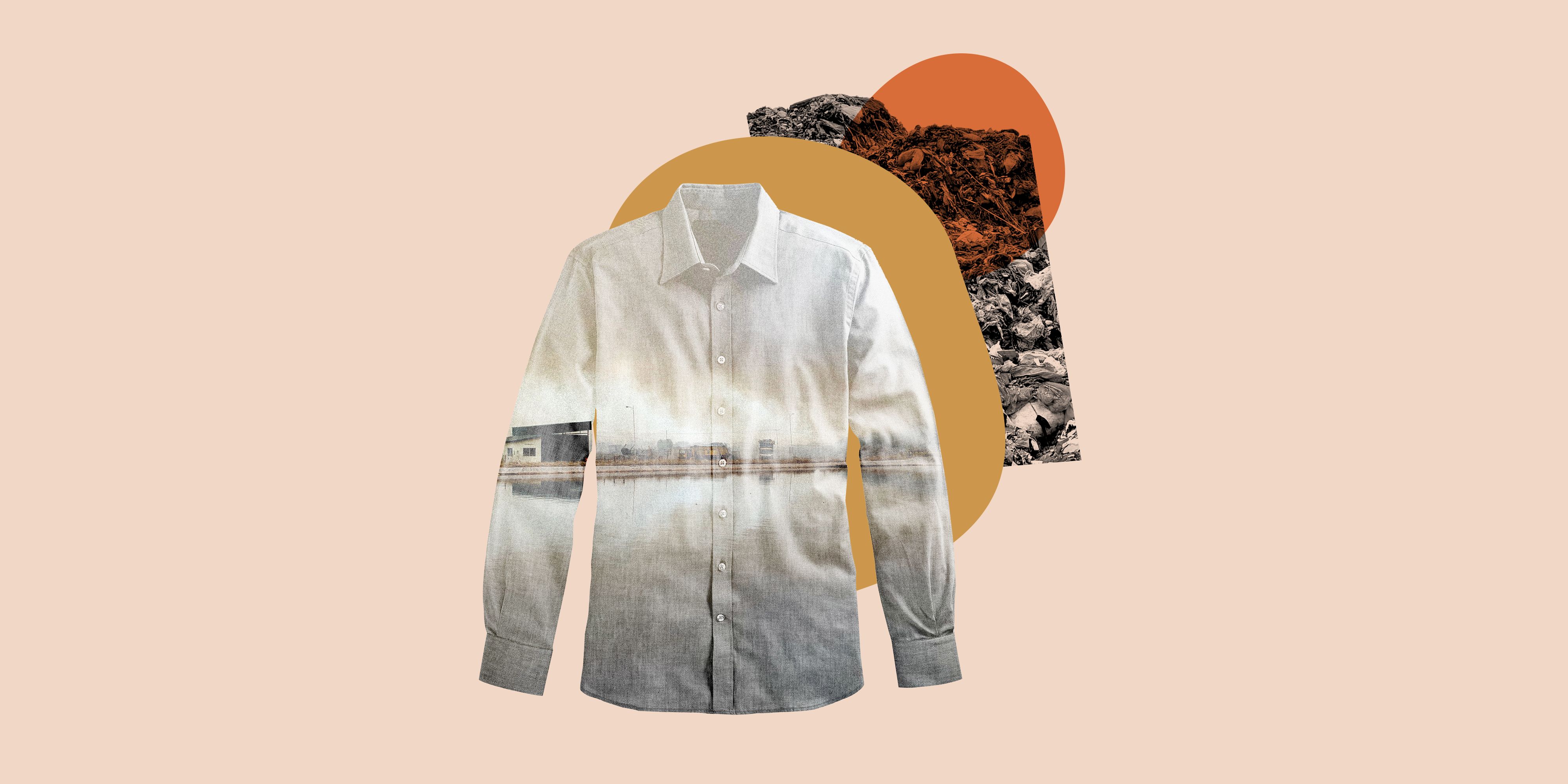Just How Cape Town Sustainable Fashion is Forming Eco-Conscious Buying
Just How Cape Town Sustainable Fashion is Forming Eco-Conscious Buying
Blog Article
Remain Ahead of the Curve by Checking Out Cutting-edge Style Trends
In a sector as vibrant as fashion, staying in advance involves more than simply adhering to present trends-- it requires an expedition of advancement. The convergence of technology and fashion heralds a new era of consumer involvement.

Embracing Smart Textiles
Recently, the fashion business has actually witnessed a transformative shift with the combination of clever fabrics, an advanced innovation that blends modern technology with fabric. This advancement represents not only a combination of aesthetics and functionality however likewise a substantial jump in the direction of sustainability and customization in vogue. Smart textiles, likewise understood as e-textiles, embed advanced electronics such as sensors and conductive threads within the fabric, allowing garments to communicate with the environment or the wearer.
These fabrics are created to check physical specifications, such as heart rate or body temperature, offering real-time wellness analytics. Beyond health applications, smart fabrics are likewise being used for adaptive clothing, which can alter color or pattern in reaction to ecological stimuli, thus offering a dynamic style experience.
In addition, the growth of energy-harvesting textiles that create power from activity or sunlight is leading the way for self-dependent wearable innovation. This technology is appealing to eco aware customers and designers intending to decrease the ecological footprint of style. As research study and growth in this field breakthrough, smart fabrics are expected to end up being significantly widespread, improving the landscape of modern-day style with their multifunctional capabilities.
The Surge of 3D Printing
Changing the manufacturing landscape, 3D printing has actually become a game-changer in the garment industry. This cutting-edge modern technology has actually enabled designers to push the borders of imagination, creating complex and customized garments that were formerly inconceivable. By leveraging digital layout and additive manufacturing, 3D printing assists in the production of complex geometries and patterns, enabling developers to trying out new appearances and frameworks.
A remarkable advantage of 3D printing in style is its ability to produce on-demand, lessening waste and reducing inventory needs. This effectiveness not just optimizes production processes however additionally enables rapid prototyping, enabling designers to bring their visions to life in a shorter timeframe. Moreover, 3D printing sustains customization somewhat unmatched by conventional techniques, offering distinct styles and individualized fits tailored to individual consumer preferences.
The surge of 3D printing has likewise democratized fashion, making it available to emerging designers who can currently produce high-grade pieces without significant economic investment in typical manufacturing framework. As modern technology proceeds to advance, the fashion business is poised to harness the complete potential of 3D printing, exploring brand-new materials and strategies that will undoubtedly redefine how style is developed and produced.
Lasting Style Innovations
As the apparel industry comes to grips with journalism need for ecological obligation, lasting fashion advancements have arised at the center of transformative modification. The growing understanding of ecological influence has sustained a shift in the direction of more eco-conscious methods and materials. Brands and developers are now focusing on sustainability, including techniques that minimize waste and minimize carbon impacts.
One considerable development is the increase of circular fashion, which highlights recycling and upcycling to extend the lifecycle of garments. This technique not just decreases waste yet likewise motivates consumers to embrace an extra conscious method to apparel usage. In addition, the use of lasting materials, such as natural cotton, hemp, and recycled polyester, has actually acquired grip. These products require much less water and power throughout manufacturing, considerably decreasing environmental effect.
An additional breakthrough depends on the adoption of cutting-edge dyeing techniques that utilize natural dyes or waterless processes, thereby reducing the vast amounts of water and chemicals typically utilized in fabric dyeing. Furthermore, developments in biotechnology have led to the creation of lab-grown leather and fabrics, supplying cruelty-free and eco-friendly options to traditional materials. Through these introducing efforts, the apparel industry is making purposeful strides in the direction of a much more sustainable future.

Tech-Integrated Apparel
Tech-integrated apparel stands for a groundbreaking combination of style and technology, reshaping exactly how people communicate with their clothing. This ingenious domain name is noted by the incorporation of clever textiles and embedded digital parts, enhancing both performance and aesthetic allure. From fitness trackers embedded in sports apparel to warmed coats regulated using smart device applications, tech-integrated garments supplies consumers unprecedented ease and adaptability.
Introducing brands are driving this fad, concentrating on producing garments that reply to ecological stimuli or individual commands. As an example, some garments can transform color or pattern in action to temperature shifts, while others integrate biometric sensing units to monitor health and wellness from this source metrics like heart rate or stress and anxiety levels. The seamless integration of technology right into fabrics likewise includes environmental sustainability, with efforts to establish self-cleaning textiles or garments that get used to weather, hence decreasing the demand for multiple layers.
Furthermore, the development of wearable technology is not simply restricted to clothing but encompasses devices like watches and glasses, more broadening the scope of tech-integrated fashion. As the industry proceeds to innovate, the capacity for modification and customization in garments expands, supplying customers special, tech-enhanced fashion experiences that cater to their private demands and preferences.
Future of Virtual Fashion
In recent years, the future of digital fashion has become a transformative pressure within the industry, leveraging advancements in electronic modern technology to redefine just how style is created, experienced, and eaten. By incorporating augmented fact (AR), online truth (VR), and 3D style devices, developers can now read the full info here craft immersive and interactive experiences that go beyond typical style limits. Digital fashion enables the production of garments that exist exclusively in digital atmospheres, providing endless opportunities for innovation without the restrictions of physical production.
This electronic shift not only presents possibilities for innovative expression however additionally addresses sustainability worries fundamental in traditional fashion techniques. Cape Town Sustainable Fashion. By getting rid of the need for physical sources, virtual fashion lowers waste and reduces carbon impacts. Furthermore, the increase of virtual fashion aligns with the increasing customer demand for customized and one-of-a-kind experiences, as virtual garments can be customized and tailored to private choices easily

Final Thought
The apparel industry's future depend on the integration of cutting-edge technologies and sustainable techniques - Cape Town Sustainable Fashion. Smart textiles and tech-integrated garments are enhancing performance, while 3D printing supplies chances for modification and waste reduction. Lasting style, with round methods and eco-friendly materials, demonstrates a commitment to ecological stewardship. Additionally, online fashion is positioned to redefine customer interactions. Adapting to these patterns is essential for brands looking for to remain pertinent and competitive in this rapidly developing landscape.
In recent years, the fashion market has observed a transformative shift with the integration of smart fabrics, an advanced advancement that mixes modern technology with textile.As the style sector grapples with the pushing demand for ecological duty, lasting style innovations have actually arised at check my reference the center of transformative adjustment.In current years, the future of digital style has emerged as a transformative force within the industry, leveraging innovations in digital technology to redefine how style is produced, experienced, and eaten. The surge of digital fashion straightens with the enhancing consumer demand for personalized and one-of-a-kind experiences, as digital garments can be personalized and tailored to specific preferences with ease.
The style sector's future lies in the integration of innovative modern technologies and lasting techniques.
Report this page